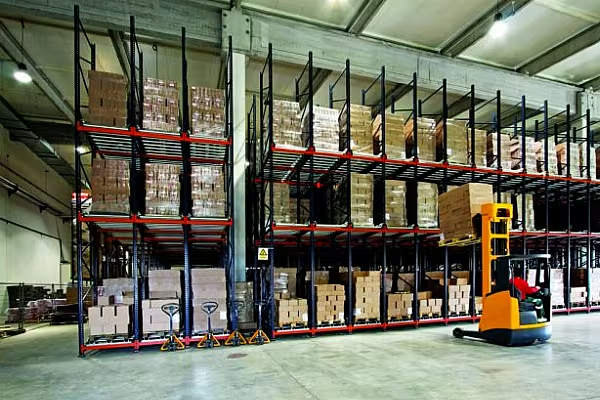In this month's Buyer's Brief, Nick Peksa reflects on whether the digital transformation in supply chains – particularly with regard to AI – is diluting critical thinking. This article first appeared in ESM's March/April 2024 edition.
Recently, an interesting webinar was promoted to me, which promised to discuss the trends and challenges in commodity procurement. The panellists were a solid mixture of experts, constructed from members of procurement teams, vendors, and supply chain specialists – it appeared that some great insights would be shared.
Although a couple of interesting snippets were offered, most of the time was spent discussing practical examples of how artificial intelligence (AI) can enhance their businesses.
Rather than spending an hour or two summarising their thoughts, I thought I would embrace the topic by asking AI to summarise their cumulative output and here it is (with some minor tweaks and de-Americanisation).
A Powerful Catalyst
In the ever-evolving landscape of global trade and commerce, AI has emerged as a powerful catalyst, reshaping traditional processes, and enhancing efficiency across various industries.
Some of the primary sectors where AI has particularly demonstrated its transformative capabilities are commodity trading, supply chain management, and the procurement of raw materials.
Predictive Analytics
AI-driven predictive analytics are being adopted as a tool by futures traders to help them make informed decisions based on historical data, weather forecasts, market trends, and other external factors. Machine learning algorithms analyse vast datasets to identify patterns, forecast price movements, and mitigate risks.
This enables traders to optimise their portfolios, make strategic investments, and stay ahead of the curve in the often dynamic and volatile commodity trading industry.
Supply Chain Optimisation
The integration of AI in supply chain management has ushered in a new era of efficiency and transparency. AI technologies, such as machine learning and blockchain, enable real-time tracking of goods, predictive maintenance of machinery, inventory management and dynamic demand forecasting.
This level of visibility allows companies to streamline operations, reduce costs, and enhance overall supply chain resilience.
Automation and Smart Contracts
AI-driven automation has significantly streamlined procurement processes for buyers. Intelligent algorithms can assess market conditions, identify optimal suppliers, and negotiate contracts, thus reducing the time and resources traditionally required for purchasing goods and services.
Smart contracts, powered by blockchain, automatically execute predefined conditions when met, eliminating the need for intermediaries, and expediting the procurement cycle. Smart contracts enhance transparency and trust between partners by facilitating secure and automated transactions. This automation reduces the risk of fraud and helps to ensure compliance throughout the supply chain.
Risk Management and Compliance
AI technologies are instrumental in enhancing risk management strategies within the commodity trading and supply chain sectors. Advanced algorithms continuously monitor market conditions, geopolitical events, and other variables that may impact operations.
By providing real-time insights, AI empowers businesses to proactively manage risks, adapt to changing circumstances, and ensure compliance with regulations, thereby safeguarding their investments and reputations.
Environmental and Social Impact Assessment
As sustainability becomes an integral part of corporate strategies, AI is being employed to assess the environmental and social impact of commodity trading and raw materials sourcing. Machine learning algorithms can analyse data related to supply chain activities, identifying areas for improvement in terms of sustainability, ethical sourcing, and social responsibility.
This enables companies to make informed decisions that align with their values and contribute to a more sustainable global economy.
Ending Thoughts
I would like to add that, in under ten seconds, using the correct keywords, an AI engine could have replaced almost the entire webinar.
Around seven years ago, I penned an article or two on the very topics discussed above. It seems that digital transformation has been very slow, and this does not surprise me, as change is a generational thing.
What the industry is starting to lose is that level of critical thinking. As companies become more and more reliant on solutions, they are slowly starting to lose the ability to understand the journey of how to get to an answer.
PS: If you would like to start some long-term supply chain planning, Gartner research is an excellent place to start. I suggest that in your future vision, you study the Hype Cycle for your chosen responsibility and include a few buzzwords. More details on the most recent Hype Cycle for Supply Chain Strategy, from August 2023, can be found here: www.t.ly/h2aew.
For more information, contact nick.peksa@cost-insights.co.uk
This article first appeared in ESM's March/April 2024 edition.














